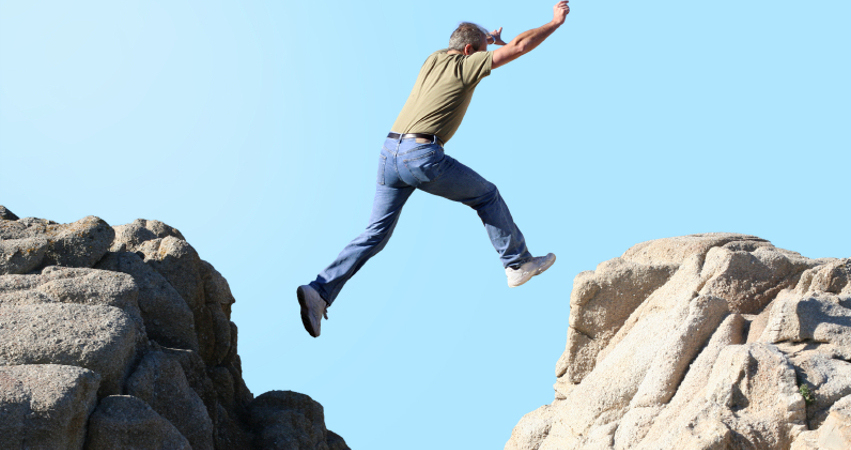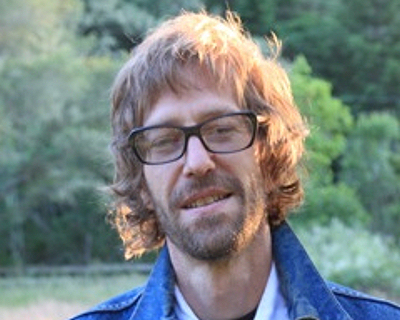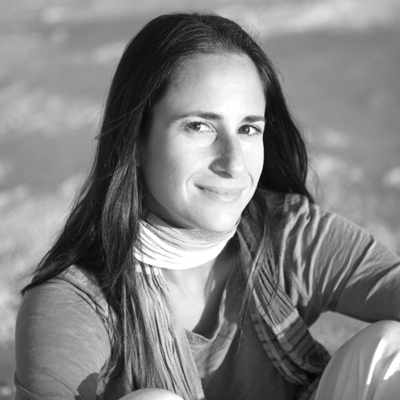Year: 2013
Facing Vulnerability
October 1, 2013Podcast: Download (3.0MB)
Subscribe: More
Why is it so hard to be vulnerable? Vulnerability is both necessary to create the real connections we crave as human beings, and it involves the risk of being rejected for the true and vulnerable selves that we might share with others.
In Daring Greatly author Brené Brown has an entire chapter on habits that we cultivate to avoid being vulnerable. Let me share a few of them and you can see if any of these patterns might appear in your own life.
From Your Minister
October 1, 2013Podcast: Download (6.3MB)
Subscribe: More
Over ten million people have now watched online a 20-minute talk called “The Power of Vulnerability.” It’s a talk by Brené Brown, a researcher on the topic.
Brown’s book, Daring Greatly: How the Courage to be Vulnerable Transforms the Way We Live, Love, Parent, and Lead is also a mega-bestseller. The huge number of us clamoring to learn from her indicates that she has hit a deep vein of longing, both for reliable data and for help with an unavoidable fact that we all figure out sooner or later: despite all our efforts to deny and ignore it, we are vulnerable.
REsources for Living
October 1, 2013Podcast: Download (4.3MB)
Subscribe: More
Imagine that you are standing in front of a group of colleagues, or your entire class, about to give a presentation. There are people in the room who can make decisions about your job opportunities or your grade, but more than that there are a whole bunch of folks watching who will decide in their own minds whether you are smart, whether you are entertaining, whether you are the sort of person they admire.
How do you feel?
The Transformation of Silence
October 1, 2013Vulnerability
October 1, 2013October 2013
“Courage is vulnerability. Vulnerability is courage. Like shadow and light, neither one can exist without the other.” —Wai Lan Yuen
Articles
Sustainable Empathy
Rev. Ana Levy-LyonsTraveling home at the end of a really hot day, I got to Grand Central Terminal and made my way down to the 7 train like I always do. Read more »
On the Mend: Brokenness and Healing
Rev. Dena McPhetresA friend of mine slipped on the ice and broke her ankle one winter and was laid up for weeks and weeks. As I expressed my sympathy for her misfortune and suffering, a surprising phrase slipped out of my mouth. Read more »
Vulnerability and Compassion
Michael S. HogueThe pragmatist philosopher-activist Jane Addams in her first book, Democracy and Social Ethics (1902), examined the great gap that she believed was then opening up between “old” and “new” ways of thinking about poverty. Read more »
Facing Vulnerability
Rev. Thom BeloteWhy is it so hard to be vulnerable? Vulnerability is both necessary to create the real connections we crave as human beings, and it involves the risk of being rejected for the true and vulnerable selves that we might share with others. Read more »
From Your Minister
Rev. Meg RileyOver ten million people have now watched online a 20-minute talk called “The Power of Vulnerability.” It’s a talk by Brené Brown, a researcher on the topic. Read more »
REsources for Living
Rev. Dr. Lynn UngarImagine that you are standing in front of a group of colleagues, or your entire class, about to give a presentation. Read more »
The Transformation of Silence
Quest for MeaningIn the cause of silence, each of us draws the face of her own fear—fear of contempt, of censure, or some judgment, or recognition, of challenge or annihilation. Read more »
Vulnerability
Quest for Meaning“Courage is vulnerability. Vulnerability is courage. Like shadow and light, neither one can exist without the other.” —Wai Lan Yue Read more »
Rejoice?
September 28, 2013First, gather friends and family. Together, build a structure with at least three sides. Roof it with bamboo or cornstalks, anything you can cut from the ground. Remember to leave spaces where the stars can shine through. Dwell in this place for a week.
“Dwelling” includes eating, talking, singing, napping, reading, relaxing, entertaining, all that is our life. Lounge here, dine here, enjoying the fruits of the harvest. Invite friends and strangers in to dine with you. If it isn’t raining and you’re up for the adventure, sleep in the sukkah you have built. The sukkah is one of the few Jewish practices that involves the entire body in the experience of a mitzvah, a commandment relating to Jewish practice and observance.
Sukkot encompasses a multitude of themes and symbols. This Jewish holiday is rich in life and lessons of an embodied faith.
Dwelling in a sukkah, a little hut open to the elements and slated for demolition only a week after its construction, one is returned to a time in Jewish history when the entire nation was homeless and wandering.
Dwelling in a sukkah invites people to remove themselves from both the materialistic things that normally fill our environment and the illusion of security that our stuff provides to us.
Many of us fill our homes with the most beautiful and expensive stuff we can afford – (sometimes more than we can afford). We are surrounded daily by our material things, symbols of our security and comfort and accomplishments.
Usually, we dwell in the midst of our stuff. Sukkot calls those who honor this holiday to leave their stuff behind for a week and return to a simpler existence.
Focus shifts from what we want
to what we need,
from what is additional
to what is essential.
Sukkot is a harvest festival, yes, but it is much more than that. It is a time when people of the Jewish faith are invited to step out of their comfort zones as a community and make sure that their life priorities are in line with what is of ultimate value. Stepping into a sukkah provides a physical framework for understanding what is ultimately important within a very intimate space.
Rabbi Mitchell Wohlberg writes:
Sukkot is the holiday of change! Sukkot is a celebration of the beauty of things that don’t last.
The little hut which is so vulnerable to wind and rain and will be dismantled at week’s end;
the ripe fruits which will spoil if not picked and eaten right away; the friends and family who may not be with us for as long as we would wish;
the beauty of the leaves changing color as they begin the process of falling and dying from the trees.
Sukkot comes to tell us that the world is full of good and beautiful things.
But that we have to enjoy them right away today because they will not last.
The children in our lives get out of the way in no time flat. Our elders die, taking their stories and our love with them. The ones we love cannot not wait for us to finish other things and get around to them. The season of Sukkot brings into sharp relief the contrast between what we value and how we spend our days; the distance – if there is distance – between how we love and how we live.
And it does not rebuke us. Instead, we are invited to give thanks for our restored sight, to celebrate the realignment of our actions with our values. Let us rejoice together, beloveds.
Yuri Yamamoto
September 26, 2013Yuri Yamamoto is a singer, pianist, composer, choir director, story teller, and meditation dancer, and is still expanding her possibilities. She is a member of SKY, a multicultural trio that performs eclectic music, and serves as the Director of Music for the Unitarian Universalist Fellowship of Raleigh, North Carolina while pursuing the UUA Music Leadership Credential. Born and raised in Japan, Yuri is actively involved in supporting the victims of the 2011 Japanese earthquake and tsunami, particularly those who were affected by the damaged nuclear plant in Fukushima. Her music videos as well as videos from an interview in Fukushima are available on Yuri’s YouTube channel. Lyrics of her Japanese songs are written by Masao Tachiya.
http://www.youtube.com/user/JAmilkpig
Travis Wernet – aka “Outlaw Dervish”
September 26, 2013Travis is a Certified Projective Dream Worker, Professional Musician and ordained Unitarian Universalist Minister who leads on-going groups, and has offered his work internationally. He fuses his offerings in occasional Work Shops drawing on a diverse set of practices for exploring the rich wisdom of dreams. In June 2012, he led a workshop on Sound Healing and Dream Work at the International Association for the Study of Dreams Annual Conference in Berkeley California. Various Sound Healing techniques are applied in tandem with the dream work, providing layers of enriched experience for accessing the Deep Self. Travis also incorporates Shamanic techniques in order to ‘bring the dream alive’ and has been facilitating groups for the past 18 years, bringing a mythological-archetypal-poetic perspective to the work and much life experience. Musically, Travis has been playing Didjeridu and offering original Mystical Spoken Word Poetry for several years in a wide variety of musical projects, including Outlaw Dervish and Axis Mundi. He has traveled to India, Egypt and Australia to play music and say poems in group ceremonies and sacred spaces, and has released 4 studio albums featuring Didjeridu, on his own, and with Collaborators, most recently “Yoro Yoro” with Ben Leinbach.
http://www.intuitivesound.net/music.htm
Amy Carol Webb
September 26, 2013The Reverend Amy Carol Webb is the “beloved song weaver” – passionate, powerful, and poignant. Born and reared in Oklahoma, Amy traces her heritage back to Native Americans through her Great-Grandmothers who settled Oklahoma when it was still a Territory. Amy’s music and ministry reflect the same pioneering spirit, tenacity, integrity and never-quit grit. With her undergraduate degree in performing arts, Amy cultivated a long and rewarding career travelling the world as a performer, recording artist and voice coach. Answering a life-long call to ministry, she earned her M.Div. from Andover Newton Theological school, and is now ordained to Unitarian Universalist Ministry. She currently serves as a hospice Chaplain, fills pulpits throughout Florida and the eastern seaboard, coaches congregational singing and composes both worship and secular music. She is presently at work on her 9th CD from her home in Miami, Florida. A congregant says, “Amy not only moves you, she moves you forward.”
Rabbi Danielle Upbin
September 26, 2013Rabbi Danielle Upbin is a prayer leader, teacher, inspirational preacher and singer-songwriter. Originally from New York City, she currently resides in Clearwater, FL, where she and her husband serve as the spiritual leaders of Congregation Beth Shalom. Chanting Hebrew prayer in a joyous and soulful manner is Rabbi Danielle’s passion. She has studied meditation, Jewish mysticism, and yoga and strives to interweave inspiring teachings from Judaism into her presentations. She is actively involved in a local interfaith coalition, and is a regular presenter of song and prayer in the Unitarian Universalist Congregation of Clearwater’s monthly gathering called “Festival Ruah: A Multicultural Spirit Experience” along with musicians, dancers, artists and spiritual leaders from around the globe.
Rabbi Danielle released her first CD in 2012, entitled, “Reveal the Light”, an eclectic collection of spiritually oriented songs and chants in Hebrew and English. It has been said of her CD: “Reveal the Light gives us a sonic pathway into the rich tradition of the jewish faith, blesses us with the gift of hearing the power and sincerity of Rabbi Danielle’s voice, and adds to our palate of songs to be sung for sheer pleasure.” – Fred Johnson, internationally acclaimed Jazz musician, singer and spiritual teacher.
When she isn’t singing, Rabbi Danielle is chasing around her four little children, running half-marathons, and baking cookies.
Her music is available on iTunes, Amazon, CDBaby and OySongs.com.
Support the CLF
Can you give $5 or more to sustain the ministries of the Church of the Larger Fellowship?
If preferred, you can text amount to give to 84-321
Latest Spiritual Reflection Posts
Latest Quest Monthlies
Weekly newsletter
About
Quest for Meaning is a program of the Church of the Larger Fellowship (CLF).
As a Unitarian Universalist congregation with no geographical boundary, the CLF creates global spiritual community, rooted in profound love, which cultivates wonder, imagination, and the courage to act.











